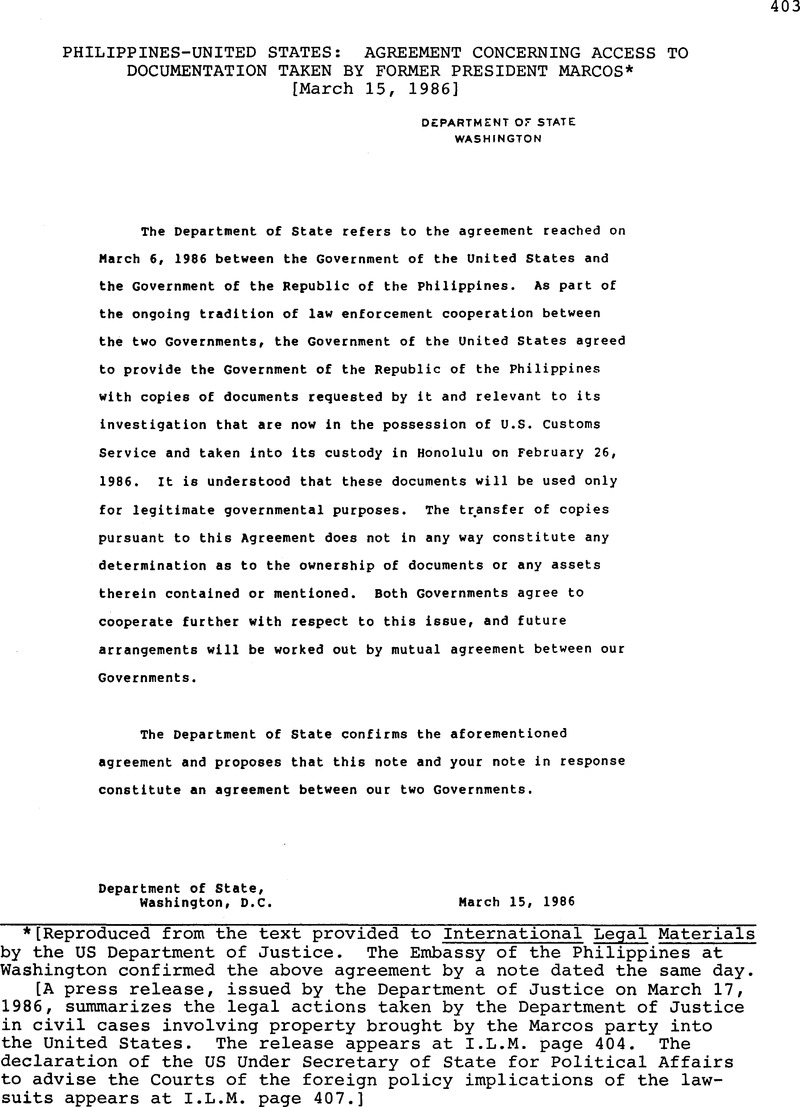No CrossRef data available.
Published online by Cambridge University Press: 27 February 2017

* Reproduced from the text provided to International Legal Materials by the US Department of Justice. The Embassy of the Philippines at Washington confirmed the above agreement by a note dated the same day.
* [On March 17, 1986, the US Court of International Trade denied the motion for a temporary restraining order to prevent the US Customs Service from transferring the property that arrived in the US with former president Marcos. [The closing paragraphs of slip opinion 86-30 stated: “Defendants argue that '[i]f the United States reneges on its promise to the new Philippine Government of President Aquino to release to a specially established Philippine commission copies of these documents for purposes of their examination and investigation, the foreign relations of this country with an important and strategically critical Far Eastern nation may be adversely affected.' In support of that claim defendants submitted an affidavit by Michael H. Armacost, Under Secretary of State for Political Affairs, describing the importance and extent of the relationship between the Philippines and the United State. The Court recognizes that there may be circumstances in which the public interest requires that constitutional rights of individuals outweigh foreign policy concerns. However, since the Court finds that plaintiffs' constitutional rights are Not threatened and that plaintiffs may Not assert the constitutional rights of a third party, the Court holds that the public interest would be best served by denying the motion.”]